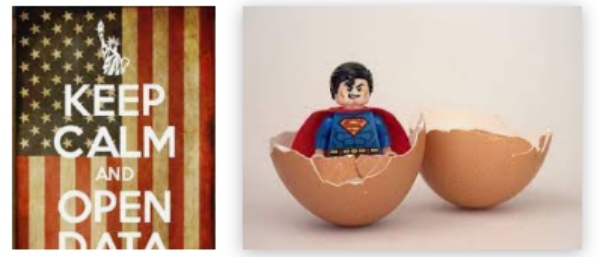THIS is what public data are for
It always was.
Terms like “public data” or “open data” usually describe data that might serve some kind of civic purpose, and usually are produced, or owned, by public administrations. J. Thorp recently discussed the fact that both words - “public” and “open” - invite a question: For whom? Here are Thorp’s main issues, followed by my own answer.
Who is “Public”, “Open” Data Really For?

- The word “open” typically refers to if and how the data is accessible, rather than toward what ends it might be put to use.
- Many people still find themselves excluded from full participation, by barriers of cost and technical ability.
- Those barriers are even higher in communities that are already marginalized, or have limited resources and literacies.
- All too often, working with public data feels like assembling particularly complicated Ikea furniture with no tools, no instructions, and an unknown number of missing pieces.
- It would be surprising if “any two people at any [Public/Open Data] events [Thorp] went to could agree on whom they were meant to be making their data open to”.
Thorp’s conclusion is that (emphasis mine):
- Today’s public data [only] serves a particular type of person and purpose.
- [Proof of this is the fact that] “public data success stories” are [only] about corporations that, in some fashion, built profit models around public data, often charging for access to the very information that the state touts as “accessible, discoverable, and usable.”
- Very few of the so-called open data projects from the last decade are actually open, unless [we specialists] manufacture a definition for “anyone” that includes only people who look and think a lot like ourselves.
Yes. Of course
Thorp’s observations and conclusions are all correct. I too asked, back in 2010, “Are citizens ready for Open Data and Government?". You may also find very similar conclusions in my “Open Data, Open Society” reports (2011, see part 1 and part 2), and in many of my other posts about Open Data.
I say this not to claim first place, but to confirm what Thorp said, because it is never repeated often enough, and to share again the answer I have been giving for years to those very concerns:
- Of course, data will never be used by the general public, no matter how open they are. Hoping so is just as delusional as expecting that every user of “free as in freedom” software would like to be, or could ever be, a co-developer of that software
- But this does not matter. More exactly, it does not matter if a dataset is only downloaded e.g. five times… if those five downloaders are journalists that make any insight from those data actually usable by the general public, as Thorp himself suggests by the way
- If more “first-hand” users of Open Data is the goal, the fastest way to get there is another suggestion I have been making for quite a while now: Open Data IN and FROM schools
Who writes this, why, and how to help
I am Marco Fioretti, tech writer and aspiring polymath doing human-digital research and popularization.
I do it because YOUR civil rights and the quality of YOUR life depend every year more on how software is used AROUND you.
To this end, I have already shared more than a million words on this blog, without any paywall or user tracking, and am sharing the next million through a newsletter, also without any paywall.
The more direct support I get, the more I can continue to inform for free parents, teachers, decision makers, and everybody else who should know more stuff like this. You can support me with paid subscriptions to my newsletter, donations via PayPal (mfioretti@nexaima.net) or LiberaPay, or in any of the other ways listed here.THANKS for your support!